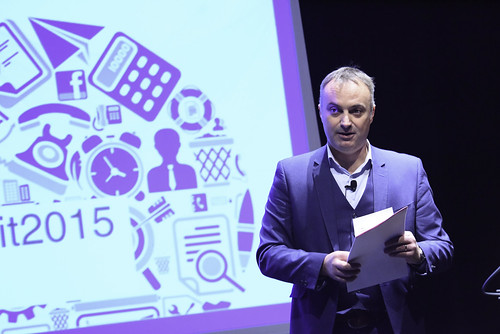Don’t optimise for the sake of optimising. Deloitte Digital’s director, Olivier Binse, was speaking at the Travolution Summit in London as part of a panel with Mike Russell, chief executive of Comtec, and Joakim Everstin, head of innovation and technology evangelist EMEA at Sabre Travel Network.
_w=800_h=600_pjpg.jpg?v=20230522122229)
Travolution Summit: Beware the temptations of ‘digital bling’, warns Deloitte
Travel firms risk taking there eyes off business critical systems by being too innovative and investing in ‘digital bling’, the Travolution Summit heard this week.
The warning came from Deloitte Digital’s director, Olivier Binse, who joined an expert panel including Mike Russell, chief executive of Comtec, and Joakim Everstin, head of innovation at Sabre Travel Network.
Asked whether innovating is essential, Binse said: “There is an awful lot of excitement about new technologies and how fast they are changing.
“There is a balance to strike if you’re an established business though – the business case is really difficult to justify.
“You’ve got to make more money out of drones, robots and voice recognition and at the same time run a business and earn the right to invest in new technology.
“Everyone’s really struggling with that balance but I am not convinced that it’s only the small businesses that have the ability to innovate or think of the old problems in new ways.”
Binse used Disney as an example of a big brand that has really integrated technology.
He said: “They have made a conscious choice to say technology is a bit like magic and that is what we do.”
Walt Disney World Resort’s guest management system MyMagic+ combines an app allowing guests to plan their park visit in advance, an expanded FastPass+ system offering speedier access to attractions and a MagicBand which can be worn at all times to avoid the need for paper tickets.
But Binse warned that companies can “lose their way” when it comes to adopting technology.
He continued: “Don’t optimise something for the sake of it just because it’s possible. I call it digital bling.
“The balance is thinking of your purpose and what you mean to your customers and really focussing on that.”
Russell, who is in contact with travel agents and tour operators in the UK every day, said: “They all face the same challenges of speed to market, cost of customer acquisition and retention, commercial edge and they tend to be the drivers of activity.
“Even customers of different sizes have very different views about where they should invest their tech spend. Or whether the all recognise that tech investment imperative to future and recognise that this is a good time to invest.”
The panelists agreed that the development of technology does not mean it will replace human input.
Binse said: “You use voice recognition to give a tool to the travel agent so they can do a better job. With doctors they have run an experiment using artificial intelligence to run CT scans and the error rate was 0% compared to 13% and the false positives reduced. It gave the doctor a tool.”
Everstin added: “It’s about using a combination of what is easier said than presented. Visual will still have a function but it will be complemented.”
Russell went on to warn that travel companies must not “drop the ball” when it comes to adopting and developing technologies.
“There is such an abundance of information it’s important that you can navigate it,” he said.
“The best results are through blending an artificial generated recommendation set with a human set of market nouse that comes from the business.
“It’s all about getting what the customer wants as quick as you can.”




